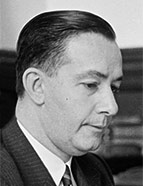

The historian from Bahia left a vast body of work spanning literature, law, and history. His historical legacy is particularly diverse, encompassing biographies, educational compendiums, documentary studies, monographs, and comprehensive histories. Among his numerous biographies, the trilogy on King João VI ( O rei do Brasil [The King of Brazil]), Pedro I ( O rei cavaleiro - Pedro IV, de Portugal [The Knight King- Pedro IV of Portugal), and
D. Pedro II ( O rei filósofo [The Philosopher King]) stands out. The latter would later be expanded and transformed into the classic História de D. Pedro II [History of King Pedro II].
Calmon’s early works focused on figures and themes related to the colonisation of Bahia, his native state. Over time, however, his scope expanded to encompass the general history of Brazil, a shift likely influenced by the publication of Peuples et Civilisations in 1926, directed by Louis Halphen and Philippe Sagnac . His first foray into general history, História da civilização brasileira [History of Brazilian Civilisation] (1932), marked the beginning of his ambitious syntheses, culminating in the seven-volume História do Brasil [History of Brazil] (1959). Another hallmark of Calmon's methodology, inspired by the French collection, was his practice of issuing revised and expanded editions of his works.
Calmon adhered to a "romantic-erudite historist or historicist" conception of history (A. Wehling, “ Apresentação ” a Pedro Calmon, História da civilização Brasileira, 2002, pp. 17-18), rooted in the historiographical tradition established in Brazil by Francisco Adolfo de Varnhagen in the 19th century. He could perhaps be described as a late Romantic historian. However, in addition to this nation-state-centred approach, Calmon sought to integrate the perspectives of Capistrano de Abreu and other contemporary thinkers, including Lucien Febvre, whose work was then largely unknown in Brazil. By incorporating geographical, economic, and socio-anthropological aspects into his analyses, Calmon broadened the scope of his historiography, combining Romanticism with more modern approaches. In addition to examining the process of territorial formation and the evolution of the political-administrative organisation of the national state, Calmon's syntheses explore the economy, social life, literature, and the arts. In essence, they aim to capture what he called the "Brazilian spirit."
This work is financed by national funds through FCT - Foundation for Science and Technology, I.P, in the scope of the projects UIDB/04311/2020 and UIDP/04311/2020.
